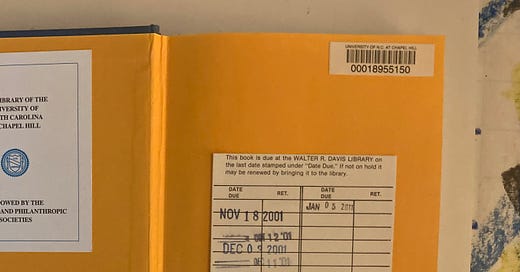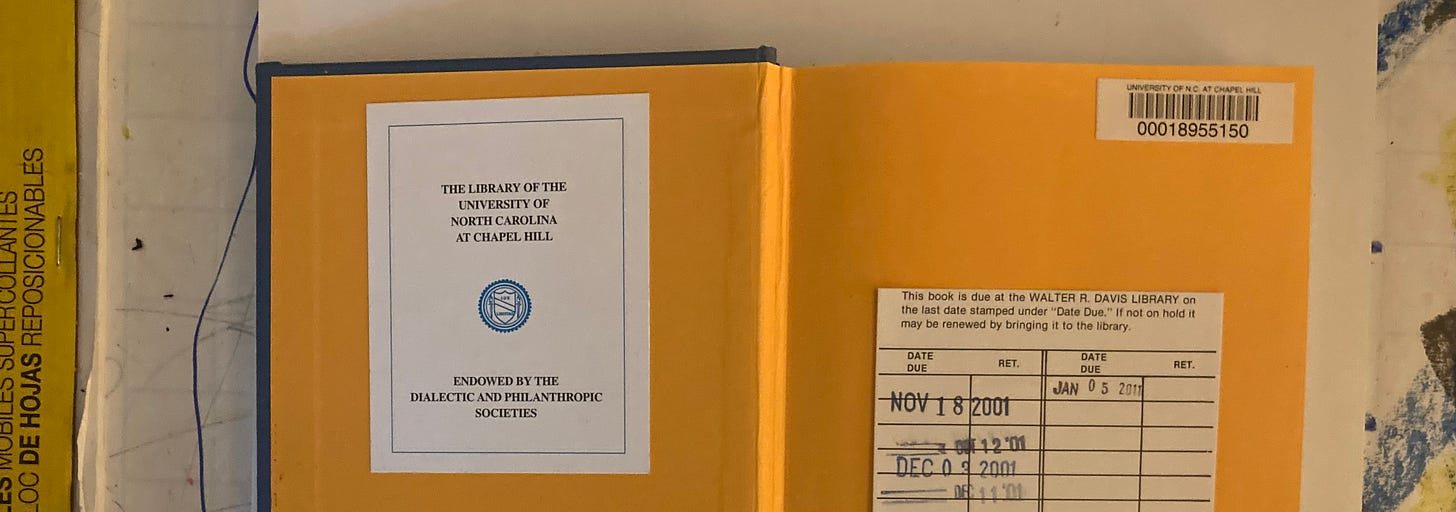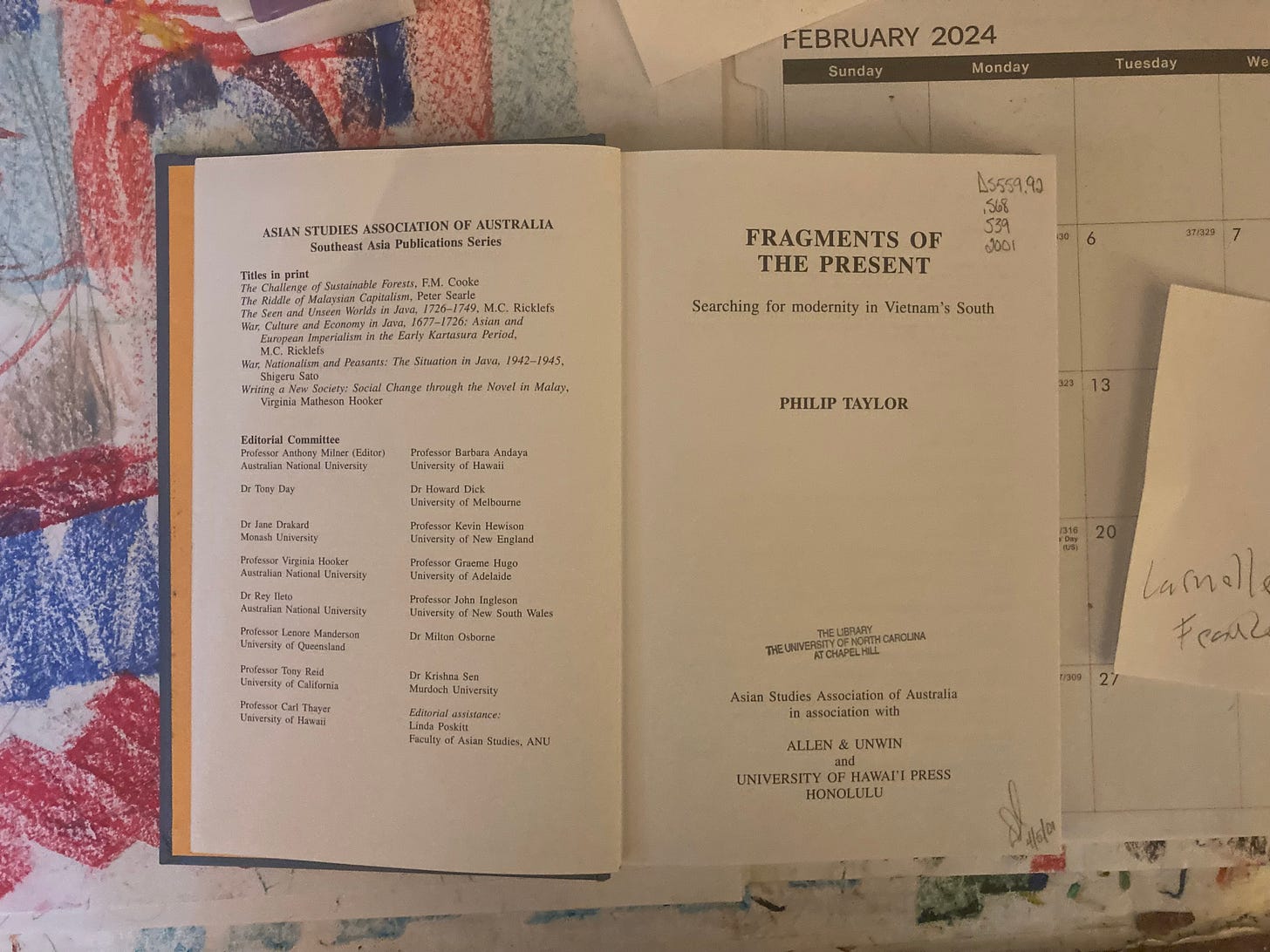THE LIBRARY OF THE UNIVERSITY OF NORTH CAROLINA AT CHAPEL HILL
When the new federal republic of 1789 brought the state together after our civil war within the revolutionary one against empire and its Cherokee ally we founded the university. Our first libraries arrived at Chapel Hill after 1795 with 2 debating societies.
ENDOWED BY THE DIALECTIC AND PHILANTHROPIC SOCIETIES
Well, first there was 1 debating society, Debating. Immediately, the membership of Debating disagreed. A second society, Concord, broke out on their own. The name means peace.
The aggressor loves peace. They added libertas to their motto and you may read it on the seal of the university, the second torch of lux, light. Whose liberty?
Debating became Dialectic, a gloss of swank on the same idea, to become the society of students from west of Chapel Hill, the yeoman farmers doing most business with free labor. Concord became Philanthropic, for those from the east, the planters of the plantations dependent upon the enslaved to keep the lights on.
You know, philanthropists. Even before Debating divided they started buying books. These were long the library of the University of North Carolina, a small town affair of entertainment for readers and reference for debaters.
There was something always to debate. The societies invited a Roman Catholic to speak at graduation in 1834, against slavery.
We emancipated Roman Catholics the next year, but never slaves. We flipped union then flopped secession just barely onto the side of the Confederacy in 1861.
The libraries, societies, and university operated right through surrender in 1865 and out the other side only to shut down in 1870 after Republicans had opened the planters’ university to black Americans. That cause lost not in debate but to the riders of the Invisible Kingdom.
1 great uncle of my first girlfriend of the 21st century rode from yeoman farm to plantation to rally support to open the university again in 1875, for whites only. Then when my grandfather was born in 1898 the Democrats drove blacks from the polls and burnt every flavor of Republicans out from office across the state.
Our democracy grew so confident that by 1929 just before mom and dad arrived we founded a research library which has fed what anybody anywhere knows about the experiment in government of the United States of America by the people, for good and ill, and its peculiar institution of bad and worse. What Southern history you may have learned refers back to documents in our collection and books from our university press.
Some of us were proud of our deeds. Some were ashamed. We have agreed so far on a library by, of, and for debate in concord. Dialectic and Philanthropy both still meet nearby and buy books.
This book is due at the WALTER R. DAVIS LIBRARY on the last date stamped under “Date Due.” If not on hold it may be renewed by bringing it to the library.
Walter was born last of 7 to yeoman farmers, but among the planters in the east. He was just senior to my senior uncles.
Instead of college he worked west, to California and Texas where he made money then retired to Chapel Hill as a philanthropist. He built the 1984 library by insisting the legislature pay the university when privatizing its utilities.
Anyone who arrives may walk the stacks and check out books.
We acquired this 1 the year it was published, 2001, when it saw 5 checkouts. There are 10 more borrowings over the next 9 years and change through January 2011. At some point after that circulation stopped stamping a due date as for instance that desk did not when I took it out sometime after 2022 for these Viet Nam letters.
I have no idea who those other readers were. I came back to campus the year the book arrived, from my dissertation research in Paris of intellectual life around Viet Nam, a closely related topic to this book’s. I had made a point of knowing anyone working at Chapel Hill or anywhere in North Carolina on anything touching on Viet Nam since I had arrived in 1997.
This book was a doctoral thesis in socio-cultural anthropology, not my profession but you couldn’t tell the difference. Yet I have no clue who read it before me. A library is great that way. Concord and debate. Dialectic and philanthropy.
ASIAN STUDIES ASSOCIATION OF AUSTRALIA. Southeast Asia Publications Series. Titles in print. Editorial Committee. FRAGMENTS OF THE PRESENT: Searching for Modernity in Viet Nam’s South.
I do know who wrote this book, well, its author. PHILIP TAYLOR. But the human species speaks through any anthropologist.
We the people do through any author, but an ethnographer cops to it in all sobriety and when drunk, sitting like Charlie McCarthy on the knee of our friends. Others’ speech is the evidentiary value of what we write and the legitimacy of its insight.
Here is an especially whispery book of voices from the modern nation whom another Dutch Jew and publisher I once showed around there called the last human beings. You can do and say what you want in the Socialist Republic of Viet Nam so long as you don’t put it in a library.
This author has gone and done just that. He might not put it that way. We shall see. You write them, my teacher Harold Bloom told the poet John Ashbery. I read them.
1 Viet Nam letter has addressed Fragments of the Present: Searching for Modernity in Vietnam’s South by Philip Taylor on March 7, 2024.
3 previous Viet Nam letters have addressed the anthropologist’s later work Goddess on the Rise: Pilgrimage and Popular Religion in Vietnam, on June 27, August 24, and September 26, 2024.
Viet Nam letters respects the property of others under paragraph 107 of United States Code Title 17. If we asked for permission it wouldn’t be criticism. We explain our fair use at length in the letter of September 12, 2022.
The colophon of these Viet Nam letters, directly above, shows the janitor speaking with poet David A. Willson on a Veterans Day.









Edifying as always. I’m just happy to see you working so productively.